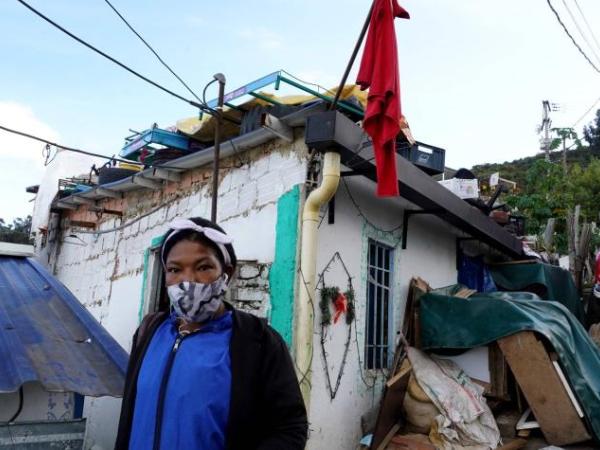The National Development Plan, which the Government filed in Congress and which will have until May 7 to become law, seeks Create a social protection system that allows helping the most vulnerable people.
For this, it give priority to job creation and, if necessary, monetary transfers will be granted to the poorest households. Additionally, the instruments that cover the risks of unemployment and old age protection will be strengthened. The goal is to lower the incidence of multidimensional poverty from 16 percent to a range between 9.5 and 11.5 percent in this four-year period.
(Read: Popular economy, the protagonist of the National Development Plan).
In this new system, which will be led by the Department of Social Prosperity, a single program will be established (called Citizen Income) that would harmonize monetary transfers. The amount of these will have a conditional component and an unconditional one. This money will depend on number of household members and socioeconomic classification according to the Sisbén or the targeting instrument that takes its place.
In addition, the delivery of in-kind resources for people in situations of poverty and extreme poverty is also contemplated. For it, a transfer in kind that will be called ‘zero hunger’ will be created.
Another important point of the next four years will be the popular economy. This is defined within the Plan as commercial trades and occupations (production, distribution and commercialization of goods and services) and non-commercial (domestic or community) developed by small-scale economic units (personal, family, micro-businesses or micro-enterprises) in any sector. economic.
The document indicates that it will be sought that the workers of the popular economy have access to protection for old age, occupational risks and the health system. There is even talk of creating a National Council of the Popular Economy, as an advisory and consultative body for the Government, made up of public entities of the national order, territorial entities and representatives of the popular economy.
(In addition: Development Plan seeks that communities can self-generate energy).
“The promotion of the popular economy is based on an understanding of its intrinsic dynamics. These activities generate significant social and economic value, and once its operation and logic of action are understood, mechanisms will be implemented that contribute to its growth and productivity.”, is read in the bases of the Plan.
The Plan states that all households will be required to report their income. The Social Registry of Households (RSH) will be created and implemented gradually. For this, the National Planning Department, led by Jorge Iván González, will design and lead a one-stop window scheme that allows the integration of services and procedures for the citizen within the framework of targeting and access to social programs.
Limits on social interest housing
The Plan stipulates that social interest housing is one that is developed to guarantee the right to housing of lower-income households and cwhose value does not exceed 3,552 UVT (about 150.6 million pesos). In addition, it is indicated that the maximum value of the priority interest home will be 2,368 UVT (about 100.4 million pesos).
It is also said that the Government may exceptionally establish, based on technical studies, maximum values up to 3,947 UVT (167.4 million pesos) for this type of housing, when they incorporate sustainability criteria in addition to the established minimums, or are located in consolidated areas of the city, or in urban agglomerations whose population exceeds 1,000,000 inhabitants and there are pressures on land values, or on land with urban renewal treatment or in territories that are difficult to access, or that respond to specific cultural, geographical or climatic characteristics, taking into account the affordability of housing.
And it will also be able to establish, based on technical studies, a value greater than 3,552 UVT (about 150.6 million pesos) in the departments of Amazonas, Guainía, San Andrés, Providencia and Santa Catalina, Putumayo, Chocó, Vaupés and Vichada, recognizing the cost of construction materials and their transportation, and labor.
(Read: Development Plan: public-popular alliances raise doubts).
Through the Ministry of Housing, within a period of less than one year from the entry into force of the Plan, the socioeconomic conditions that households must meet, the applicable mechanisms to be eligible in the housing policy, the minimum habitability characteristics of the dwelling and its surroundings, as well as the active and/or passive sustainability measures that social interest housing must include.
New things are also included in the Plan, such as that iNNpulsa Colombia and Colombia Productiva would merge.
Likewise, it is indicated that the Emergency Mitigation Fund (Fome) would be liquidated or that the Chambers of Commerce will allocate a percentage of the resources they receive or manage for the provision of public services to cover part of the financing of development programs business run by the Ministry of Commerce, Industry and Tourism.
(See: This is how the $1,154.8 billion of the PND of the Petro government will be distributed).
THE WEATHER-ECONOMY


















